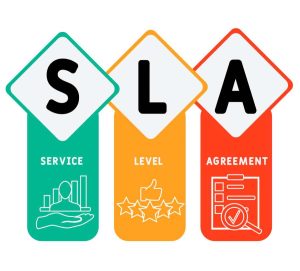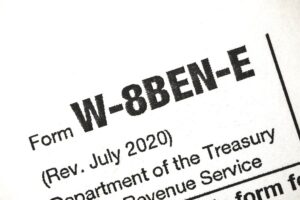A service level agreement (SLA) is a formal contract between a service provider and the customer outlining performance expectations, quality metrics, and consequences for violations. It is widely used in IT-related areas like the internet, business cloud communications, and managed services. Service level agreements manage customer expectations and define specific remedies if the provider fails…
What is
What Is a VoIP Gateway? Definition & How to Use It
A voice-over-internet-protocol (VoIP) gateway is a bridging device that converts call traffic into data packets that can be transmitted over the internet. Public switched telephone network (PSTN) systems are analog and send voice signals along copper wiring, while VoIP systems are digital. Analog and digital gateways are excellent options for businesses switching to business VoIP…
What Are Core Values in Business & How to Write Them
Core values are principle-based statements about how your company does business. They guide everything from long-term strategy to daily operations. Together with mission and vision statements, core values are the bedrock that makes up your brand identity. Learn more about what core values are, why they matter, and how to write them. Download our free…
What Is a Payroll Advance? Everything Employers Should Know
Giving your workers a payroll advance simply means offering them early access to their paychecks (generally due to an unforeseen event) with agreed-upon conditions. It basically functions as a short-term loan that employees repay with future paycheck deductions. Before offering staff this option, you should carefully consider legal regulations, taxes, and alternatives. What to Consider…
What Is Form W-8BEN-E? A Small Business Guide
Form W-8BEN-E is an Internal Revenue Service (IRS) form used by foreign companies that get paid by US companies. For example, if you hire a contractor not based in the US and contracting through a foreign entity, the contracting company is required to submit the document to your business. The form, called the Certificate of…
What Is Personal and Advertising Injury Coverage?
Personal and advertising injury coverage protects your business against claims, typically involving an infringement on a third party’s rights or intellectual property. It can cover libel, slander, and copyright infringement. Coverage is included in a commercial general liability (CGL) policy and, in the event of a claim, provides defense up to your coverage limits. How…
What a Favicon Is & How to Use It (+ Design Tips & Examples)
Favicons are a valuable digital marketing asset. They help visually identify your business in the vast realm of the internet. Though tiny, they’re definitely mighty and can help increase your brand awareness and improve the user experience on your website. Keep reading to learn more about what a favicon is, why it is valuable, and…
What Is IVR? How It Works & Benefits for Small Businesses
Interactive voice response (IVR) is a voice-over-internet-protocol (VoIP) technology that helps callers access information or technical experts to resolve concerns. It’s best for businesses and contact centers that experience high call volumes and are looking to reduce wait time while improving quality service. In this article, we answer, “what is IVR?” and explore how it…






